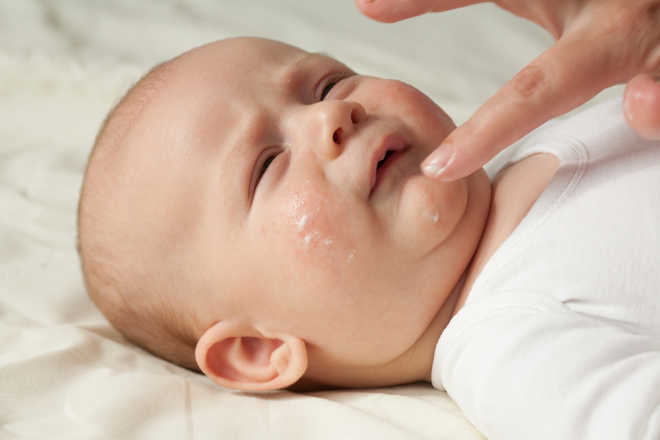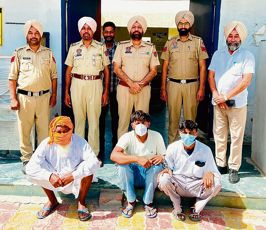
Tribune News Service
Ludhiana, November 16
The winter season is here and with change in season, cases of atopic dermatitis will also see an increase.
Atopic eczema, also known as atopic dermatitis (AD), is an acquired, chronic, inflammatory, pruritic skin disease of unknown origin that usually starts early in children at two or three months (an adult-onset variant is recognised) with periodic increase and decrease.
“It is characterised by pruritus (itching), thickening of the skin and an increase in skin marking is a common condition in the sudden change of temperature and parents should keep a close watch on children prone to developing allergies or skin conditions,” says a city-based dermatologist Dr Alka Dogra.
Various environmental and other factors are known to worsen it. Common triggers of the condition are change in temperature. Patients do not tolerate sudden change in temperature. Lying under warm blankets, entering a warm room and experiencing physical stress — all intensify the desire to scratch. A sudden lowering of temperature, such as leaving a warm shower promotes itching. Patients should be discouraged from wearing clothes that tend to trap heat.
Discussing the triggering factor, she said sweating induces itching, particularly in the lower arm and behind knee joint to a greater extent in atopic patients than in other individuals. Similarly, decrease in humidity, contact with irritants as wool, chemicals, cosmetics, soaps and cigarette smoke also tend to aggravate itching.
She said aeroallergens such as house dust, mite, pollen, pet dander, human dander as well as spring and summer flare (swelling) could also be associated with the introduction of new trigger factors into the environment or even a new environment such as building works, shifting houses and so the trigger factor history should be reviewed frequently.
“Certain food allergens, including eggs, peanuts, milk, fish, soy, wheat, which cause food allergy in infants, young children and selected older children, should be diagnosed with moderate to severe AD,” Dr Dogra said.
Emphasising the need for modification in lifestyle, she said it could help avoid triggers in children affected with AD. To avoid aeroallergens, patients ought to stay away from wet mopping of floors and surfaces, pets, carpets and plastic covering of mattresses.
“To effectively tackle food allergens, exclusive breastfeeding till six months of age for infants is advised and affected children should be given bath with soaps – preferably syndets with pH around 6, and that too should be applied only to intertriginous sites (groin and axillae). At the same time, liberal use of emollients is must to moisten skin after bathing to trap moisture. Topical medications should be applied first to the affected areas of skin with emollient applied afterwards to the non-affected skin,” she said.
What is atopic eczema
Atopic eczema, also known as atopic dermatitis (AD) is a condition when the skin becomes red and itchy. It is common among children, but can occur at any age. It is long lasting and tends to flare periodically. It can be prevented by treatment and self-care measures. One should avoid harsh soaps, moisturise skin regularly and apply medicated creams.
Things to do
- Environmental control is a crucial factor in bringing relief to AD-afflicted children
- Cool and stable temperature should be maintained, patients should not be overdressed and bed blankets should be limited to avoid sweating
- One should guard against airborne allergens and dust, do not have rugs in bedrooms, vacuum clean drapes and blankets, cooking odors should be ventilated and keep only artificial plants in rooms
Symptoms
- Dry skin
- Itching, which can be severe specially at night
- Small raised bumps
- Red, brownish patches, specially on hands, feet, ankles, wrist, neck, inside the bends and scalp



























